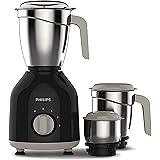Though two-thirds of our Earth is made of water and a third of the land, still there is a very limited quantity of water that is suitable for drinking. Most of the water is either found in seas and oceans and consists of high quantities of salt, which is unfit for human consumption. This leaves us with a very small quantity of water that can be consumed by humans. The consumable water, however, is being contaminated by various pollutants these days. It is therefore vital that water is purified first before drinking. In this article, we are going to have a close look at the different types of water purifiers in India and what points to remember while buying a water purifier.
Water contamination is a very common phenomenon in the present times due to the increased amount of environmental pollution. It is very harmful to human health, as water contains pollutants, which can be fatal.
Technology, however, seemed to have found a cure for this. Water purifiers play an integral part in our lives. Water purifiers are instruments that are designed to get rid of harmful pollutants and chemicals from water and make it suitable for drinking.
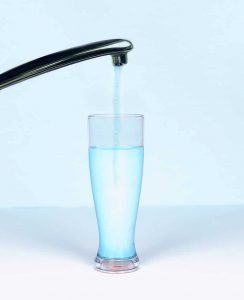
There are different types of water purifiers that have several purification methods.
Table of Contents
Types of water purification
Water can be purified through different types. Water purification is of the utmost importance when it comes to human health. The harmful contaminants in the water are capable of making humans contract several water-borne diseases which can finally lead to death. There are different methods of water purification. Before we talk about different types of water purifiers in India, let us have a closer look at different ways of water purification.
AGARO Elite Rechargeable Mini Electric Chopper, Food Grade Bowl, Stainless Steel Blades, One Touch Operation, for Mincing Garlic, Ginger, Onion, Vegetable, Meat, Nuts, 250 Ml, Black.
ATOM Digital Kitchen Food Weighing Scale For Healthy Living, Home Baking, Cooking, Fitness & Balanced Diet. | 1 Year Warranty | 10Kg x 1gms with 2 Batteries Included, SF400/A121, Color May vary
Borosil Chef Delite 300 Watts Electric Chopper for Kitchen, Twin Blade Technology, 600 ml 'chop-n-store' plastic bowl with lid, Vegetable Chopper, Cutter, Chop, Mince, Dice, Whisk, Blend
Philips HL7756/01 750 Watt Mixer Grinder, 3 Stainless Steel Multipurpose Jars with 3 Speed Control and Pulse function (Black)
1. Membrane technology
Under membrane technology, we have
1.1 Reverse Osmosis(RO)
Reverse Osmosis is a very popular method of water purification that uses membrane technology. It is used to remove dissolved salts, impurities, and germs from the water.
The semipermeable membrane allows only water to pass through it and leaves behind harmful chemicals, dissolved salts, and microbes which remain suspended in water. Ro purification, however, alters the taste of water.
It is suitable for hard water that has a high TDS level. Thus, it is rightly known as a hard water purifier.
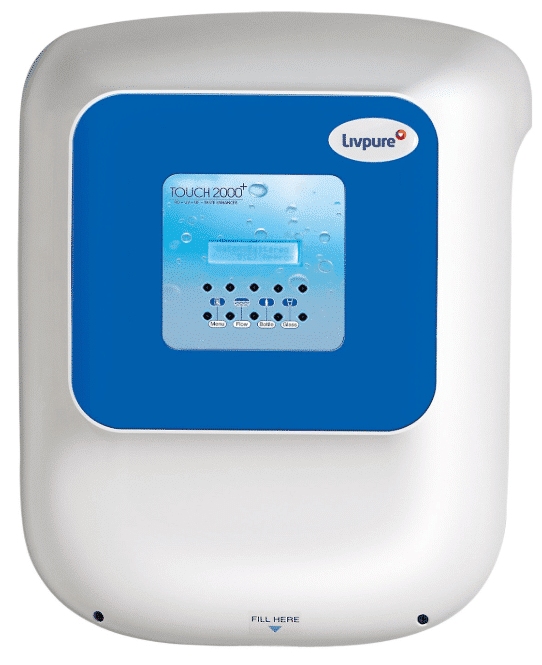
1.2 Ultra Filtration (UF)
Ultra Filtration purification method also uses membrane technology, but the difference is that it contains a membrane with more prominent pores. It removes all microscopic particles from water. It is, however, incapable of removing dissolved salts and solids.
The UF purification process is suitable for not very hard water and has a very low TDS.
1.3 Ultra Violet (UV)
Ultra Violet purification, being an e-boiling method, uses ultra-violet light to kill germs, bacteria, cysts, etc. it is capable of removing 99.99% of harmful organisms from the water. It uses a tiny mercury lamp that emits a short wave of UV radiation that purifies water and penetrates the cells of bacteria and viruses, thereby destroying their capability to reproduce, causing them to die eventually.
The dead bodies of the germs, however, remain in the water, which is further removed using a different process.
Related Reading:
RO Vs UV Vs UF: Which One Is The Best
2. Carbon-based
Under the carbon-based method, we have
2.1 Activated Carbon
Activated carbon works by chemically bonding with the water and helps in the elimination of chlorine from water, thereby improving the taste and odor. It is, however, incapable of removing contaminants such as sodium, nitrates, microbes, and fluorides.
2.2 Carbon Block
These are block-shaped filters that are composed of crushed carbon particles. They have a greater effect due to their larger surface area. Their effectiveness depends on the rate at which water flows through these filters. Fibredyne carbon block has greater sediment holding capacity compared to other block carbon filters.
2.3 Granulated carbon
Granulated carbon works by using small grains of carbon to filter water. They are less effective compared to their block-shaped counterparts due to their small surface. In this process too, their effectiveness depends on the rate through which water flows through these filters.
3. Ion-based
Under the ion-based method, we have
3.1 Deionization
It facilitates ion exchange in the water to remove salts and other electrically charged ions. It removes contaminants that lack an electric charge. This method, however, does not remove viruses and bacteria.
3.2 Ion Exchange
This method uses resin to replace harmful ions with a less harmless one. This purification method is used for softening water because it can replace calcium and magnesium with sodium. This method, however, requires the resins to be charged with harmless replacement ions for the longevity of the filter.
3.3 Water Softeners
This method also uses ion exchange technology to reduce the calcium and magnesium levels of the water by replacing them with sodium.
So, these are different methods of purification of water.
Types of water purifier
Different water purifiers work using different purification methods. The different types of water purifiers in India are
1. UF (Ultra Filtration) Water Purifier
This is one of the different types of water purifier that uses hollow fibers of a membrane made of a thin layer of material to separate water from other particles present in water. This purifier can only block larger particles and hence is less effective than RO purifiers. These are therefore suitable for water with a low TDS level. Other than removing germs and bacteria, it is incapable of removing chemicals from water.
2. Activated Carbon Water Purifier
This is one of the different types of water purifier that work best for disease-causing pesticides and heavy metals. It removes chlorine from water. It is made of small pieces of carbon. Along with improving RO membrane life, it blocks chlorine and other particles that damage the membrane life. It improves the taste and smell of water.
3. RO(Reverse Osmosis) Water Purifier
The RO water purifiers remove metal particles like arsenic, fluoride, lead, chlorine, nitrates, and sulfates. It uses a semi-permeable membrane to purify water. The water pump in the RO water filter pressurizes the raw hard water to pass through the RO membrane that removes all the metal particles.
These water purifiers work best on hard water. These are one of the different types of water purifier that are preferred in parts of India, where the water has very high TDS levels. They are widely preferred in Indian households since they work on different sources of water like tap water, municipal water, bore well, etc. by improving the taste and odor of water.
The different types of RO water purifiers are wall-mounted or counter-top water purifiers and under-sink or under-counter water purifiers.
4. UV(Ultra Violet) Water Purifier
This is one of the different types of water purifier in which the water has to pass through a UV lamp fitted in the filter. When the water passes through the UV light, it kills all water-borne disease-causing micro-organisms, pathogens, and cysts making the water healthy and suitable for drinking.
However, the micro-organisms killed by the UV remain in the water, though it doesn’t cause any harm. They are suitable in regions where the water has a low TDS level. It keeps the taste of the water intact and has a high-efficiency rate as compared to RO, UF, and Activated Carbon Filters water purifiers.
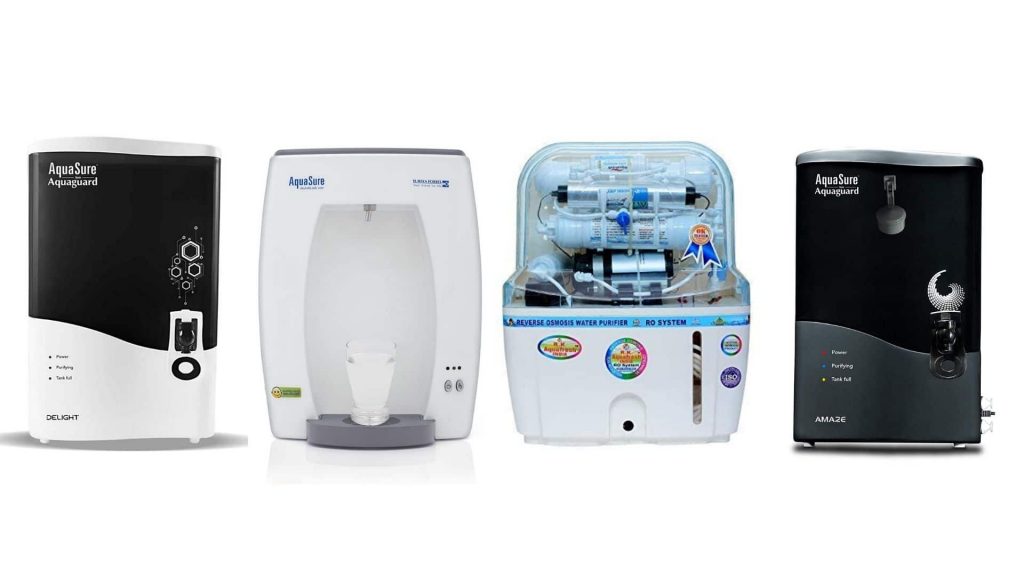
These are mainly the four most important water purifier types. As we now know about the different types of water purifier, let us talk about some important differences.
Difference between RO and UV water purifiers
The difference between RO and UV water purifiers are –
RO water purifiers
They are best suited for hard water where the TDS levels are very high. They help in removing heavy metals, fluoride, arsenic, and other toxic impurities from water. It improves the taste and smell of water. They are capable of removing dissolved salts from water. It kills and filters the dead bodies of bacteria. They can work on muddy water. They require electricity to boost water pressure.
UV water purifiers
UV water purifiers use a UV lamp to remove contaminants from water. They are ideal for purifying tap water and municipal water. They work best on the water that has low TDS levels. It does not alter the taste and smell of water. They are incapable of removing dissolved salts from water. It is incapable of removing the dead bodies of bacteria from the water. They cannot work on muddy water. They can work with normal water pressure.
We have thus seen the facts about RO versus UV water purifiers. You are suggested to check the TDS level of water before investing in a water purifier.
Gravity based water purifier vs RO
Let us now see the difference between gravity-based water purifiers and RO.
Gravity based water purifiers
It uses a gravitational force as well as a filter to purify water. It can work without electricity or running water. The purifier works by removing dirt and pollutants as water flows from one section to another. It also has an activated carbon module that removes parasites, viruses, and other impurities, thereby making water safe and healthy for consumption. These can be used where the TDS level of water is low.
This also answers our questions to “what is a gravity-based water purifier?”
RO water purifiers
They are best for areas that have high TDS levels. RO water purifiers help in removing heavy metals, fluoride, arsenic, and other toxic impurities from water. It works on electricity. Ro water purifiers are one of the finest water purifiers which are available in the market.
With the increasing amount of pollution, buying a water purifier has become a necessity to prevent diseases.
Best gravity-based water purifiers
Top 6 best gravity based water purifiers.
1. Kent Gold Plus UF Gravity Water Purifier
It is the best gravity water purifier that uses UF technology to get rid of harmful micro-organisms like bacteria, viruses, cysts from water. It also has a Nano-silver, carbon layer that removes disinfectants from water. It also comes with sediment and activated carbon filters that eliminate disinfectants from water.
It makes water drinkable by removing chlorine, bromine, and iodine from water. It is made of transparent, non-breakable food-grade polycarbonate. It has a detachable storage space that can be cleaned easily. It can both be mounted on the wall as well as kept on the kitchen platform.
Specifications
- One-year warranty.
- Storage capacity – seven liters.
- Does not require electricity.
- Is Certified by CE.
Related Reading:
Kent Vs Aquaguard Water Purifiers in India: Who Rules The Market?
2. Kent Gold Star 22 liters Gravity Based Water Purifier
This gravity-based water purifier uses ultra-filtration for removing bacteria, cyst, and chemicals like chlorine and iodine from water. It has a storage capacity of 14 liters of purified water and 8 liters of non-purified water.
It consists of an SS filter that removes visible particles, a sediment filter to remove impurities, and an activated carbon filter to remove bad odor from water and make water drinkable. It is made of high-quality food-grade, non-breakable plastic.
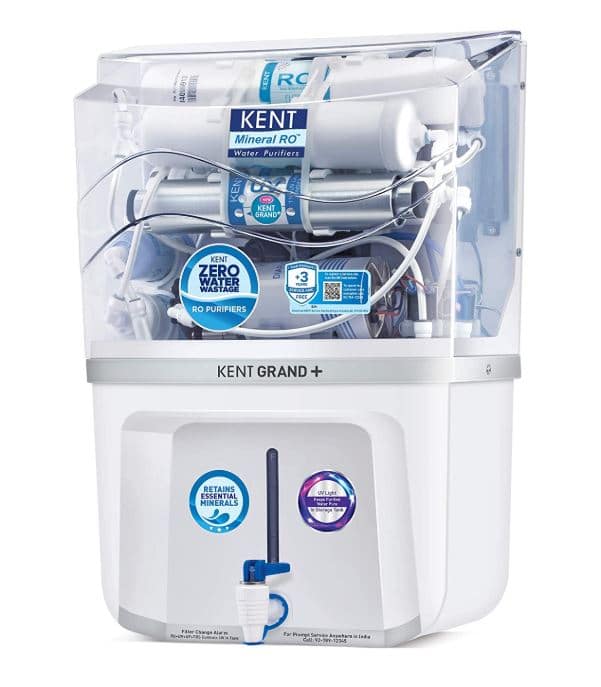
Specifications
- Is certified by WQA and NSF.
- Warranty of one year.
- Does not run on electricity.
3. HUL Pureit WPWL 100 Classic 23 Litre Gravity Based Water Purifier
This gravity-based water purifier contains four stages of purification. The activated carbon trap removes pesticides from water. The germ kill kit removes germs, bacteria from water; the virus removal technology can remove 1 crore virus from 1 liter of water. It is made of high-quality and unbreakable plastic.
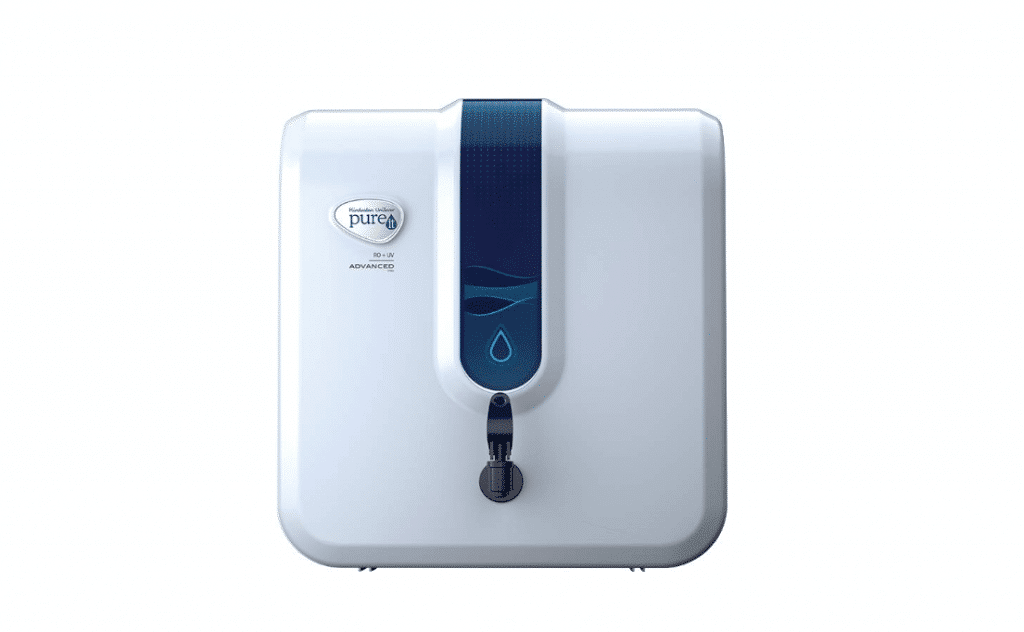
Specifications
- Has a 6-month warranty.
- Is EPA certified.
- Functions without electricity.
4. Tata Swach Non-Electric Gravity Cristella Plus 18 Litre Purifier
It has a purification capacity of 3000 liters. It purifies the water of harmful chemicals such as chlorine, bromine, and iodine. It has a capacity of 18 liters with storage space for 9 liters of purified water. It uses advanced silver nanotechnology that can eliminate 100 crores of bacteria and 1 crore of viruses from 1 liter of water. Made of scratchless and food-grade plastic.
Specifications
- Comes with a warranty of 6 months.
- Does not require electricity to run.
5. Pureit Advanced 23 liter Gravity Water Purifier
It comes with a double layer of protection and storage space of 23 liters. It functions on 4 purification stages- pre-programmed germ killed processor, advanced microfiber mesh, carbon polisher, and micro-charges membrane. The activated carbon present in it removes bad odor from water. The germ kill kit helps to remove micro-organisms from water, thus making water fit for drinking. It is made of high-quality, unbreakable plastic.
Specifications
- Comes with a storage space of 23 liters.
- Runs without electricity.
6. Whirlpool Destroyer 6 liter Water Puriferol
This purifier is designed with electro-absorption technology. The best part about this purifier is that it doesn’t waste water since it has an auto shut-off button. It has a 5 stage purification process. It has a storage space of 6 liters.
Specifications
- Has a warranty of 1 year.
- Runs without electricity.
- Has a 6 times higher purification rate than RO purifiers.
If you are someone who is looking for the best gravity-based water purifier, then buying any one of those mentioned above would be a good choice.
Water Purifiers for hard water
Since nowadays water is contaminated with harmful chemicals, micro-organisms, and pollutants, water purifiers have become an integral part of our homes. They guarantee us safe and pure drinking water. Water purifiers are essential where the water has a very high TDS level. RO water purifiers work best on hard water. Go through the best water purifier for hard water list to choose the one for you.
1. Kent Grand 8- Liter Mineral RO+UV+UF water purifier
Kent Grand has a RO+UV+UF along with advanced mineral RO TM technology. The TDS controller retains essential minerals.
Features
- Has a storage space of 8 Liters.
- Suitable for all types of water.
- Offers 3 years of free servicing and a free installation.
2. Eureka Forbes Aquasure from Aquaguard 6 Liters RO+UV+MTDS water purifier
Eureka Forbes Aquasure has a water level indicator. MTDS technology ensures a good taste of water. It is one of the types of ro water purifier.
Features
- Has a storage capacity of 6 liters.
- Comes with a warranty of 1 year and free installation.
- Has smart energy-saving technology.
3. HUL Pureit 5 Liters Advanced RO+UV 6 Stage Water Purifier
HUL Pureit is made of engineering-grade plastic material. It boasts a 6 stage purification process.

Features
- Comes with a storage capacity of 5 liters.
- The TDS controller works on hard water.
- Has a UV+RO+MF+TDS controller which ensures safe water.
4. Kent Pearl 8 Liter Mineral RO+UV+UF Water Purifier
Kent Pearl comes with a smart alarm system. It will tell you when it is time to change the filter. This water purifier is suitable for purifying municipal water, tap water, and groundwater.
Features
- Offers double purification of RO+UV+UF.
- Has a storage space of 8 liters.
- Has a TDS controller with mineral RO technology.
So, you can choose from the above-mentioned different types of water purifier depending upon the requirements.
Frequently Asked Questions
Here we answered most asked FAQs about different kinds of water purifiers.
1. What are the different types of water purifiers?
Water contamination is very common in the present day. Hence, there are different ways of water purification. Based on water purification technique, four different types of water purifiers are –
- UF (Ultrafiltration) water purifier
- Activated Carbon water purifier
- RO (Reverse Osmosis) water purifier
- UV (Ultra Violet) water purifier
2. Which type of water purifier is best?
RO water purifier is one of the most popularly used water purifiers. RO technology removes heavy metals such as fluoride, arsenic, and toxic impurities from the water. It cuts out the odor from the water and improves the taste, making it drinkable. Furthermore, it kills and filters the dead bodies of the bacteria from the water. They are best suited where the water is muddy, and TDS levels are very high.
3. Which is better: UV or RO water purifier?
RO water purifiers are best for hard water or where TDS levels are very high. While UV water purifiers are best suited for purifying municipal water or tap water and with low TDS levels.
Another factor is RO water purifier helps in removing heavy metals and toxins, whereas UV water purifiers are incapable of doing that.
Depending on the hardness, TDS, and PH level of water, the water purifier should be selected.
4. Is 30 TDS water safe for drinking?
For drinking water, the TDS level between 50- 150 is considered safe to consume. This range is most suitable and accepted widely.
Conclusion
Water pollution has become one of the foremost problems in India. Nearly 37 million people suffer from water-borne diseases in India due to contaminated water. Some of the common water borne-diseases are typhoid and diarrhea. Around 66 million Indians are at risk of dying by consuming water with an excessive amount of fluoride in it.
Ten million people are at risk of arsenic contamination in water. Hence, every household in India should have water purifiers at home. There are different types of water purifier available on the market. These water purifiers eliminate the risk of contamination of water-borne diseases and make water safe and hygienic for drinking.
This article gives you detailed information on what is a water purifier, the different methods of water purification, and the different types of water purifiers in India.























